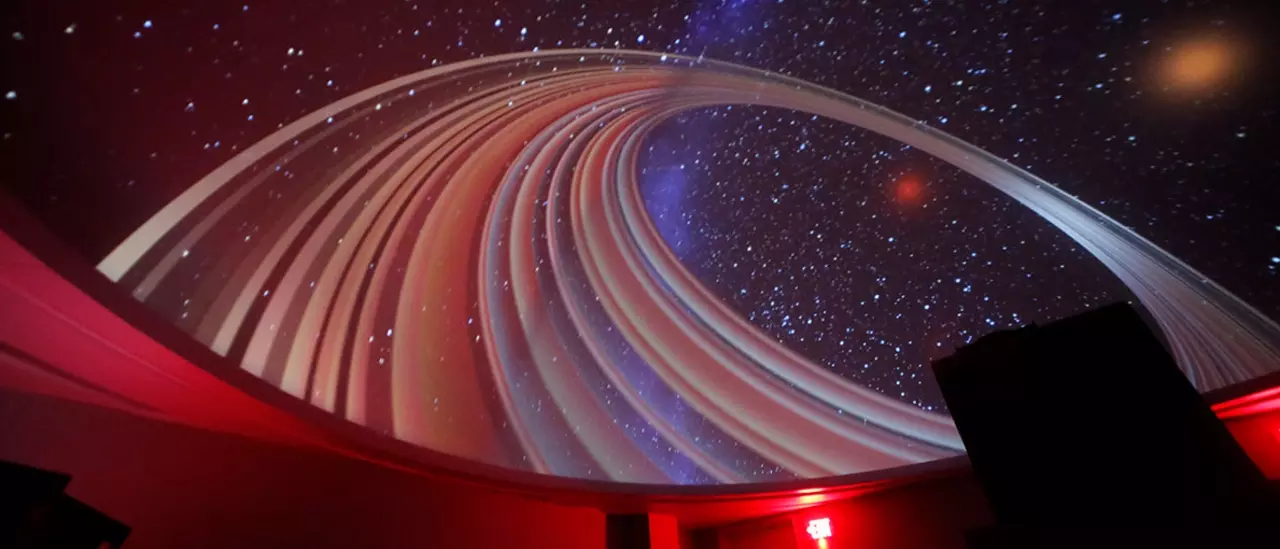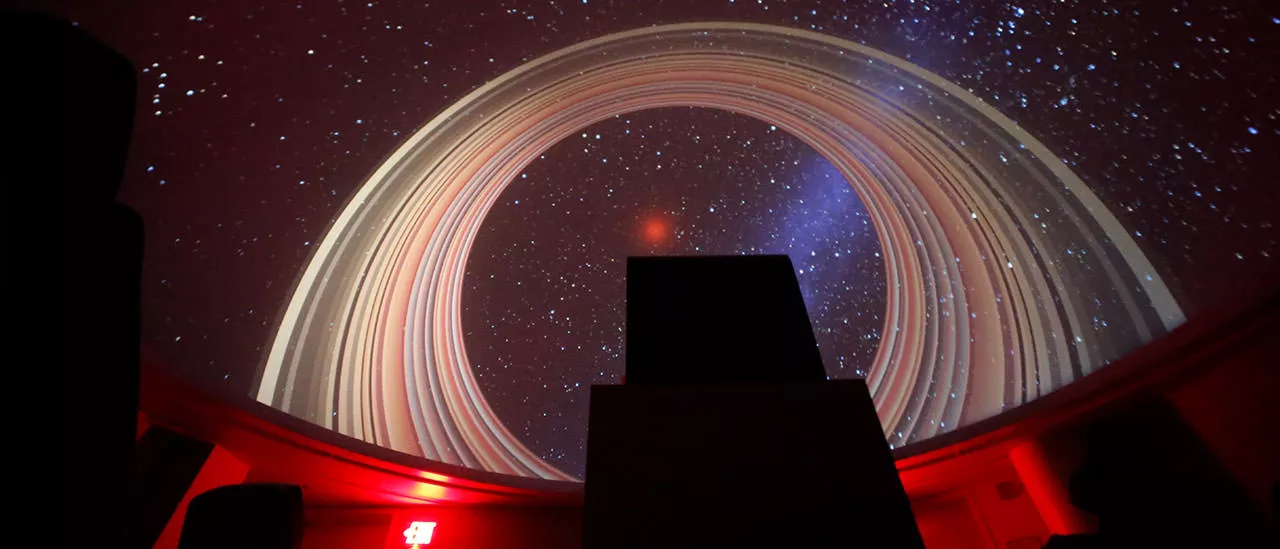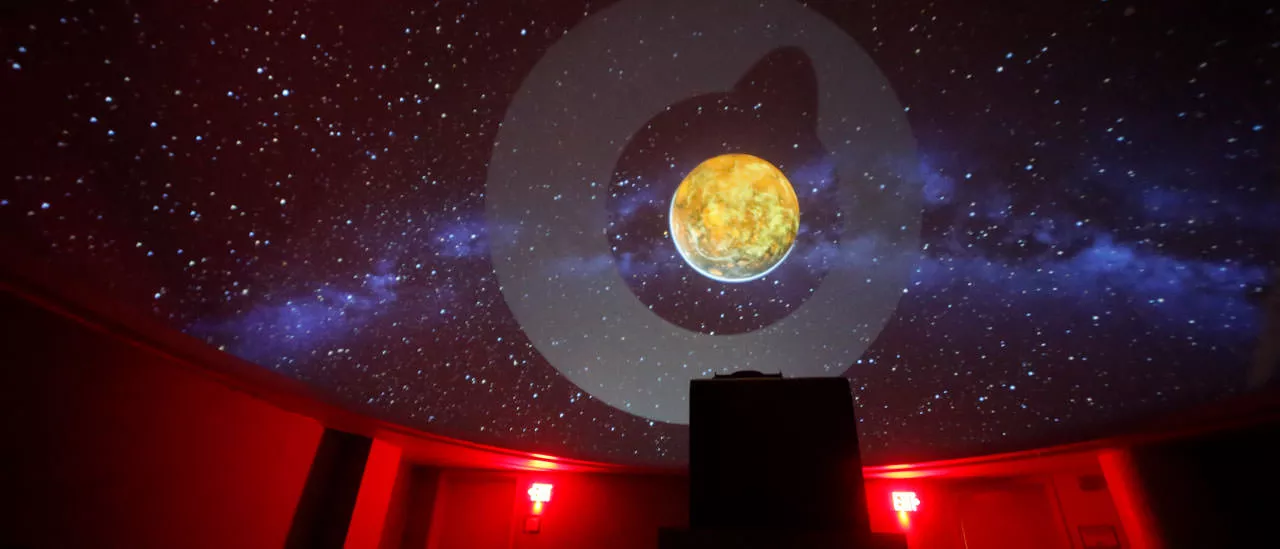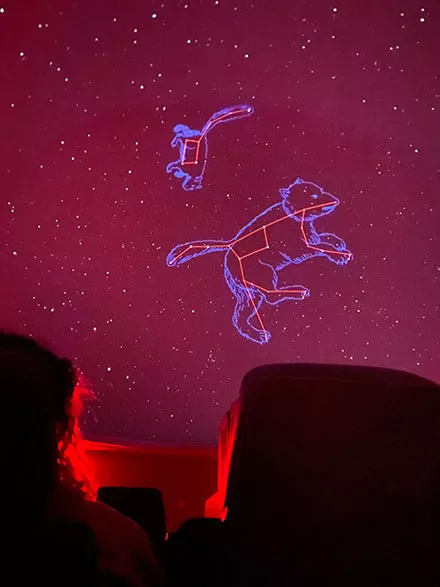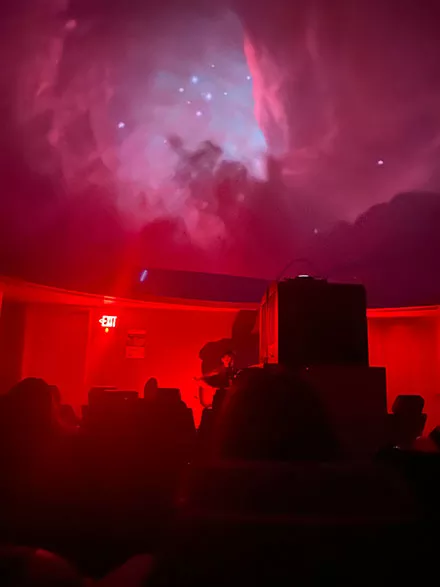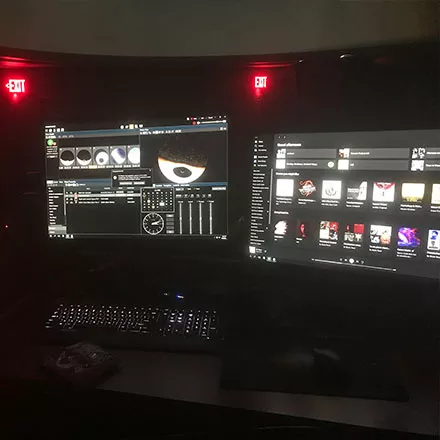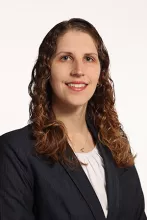The Nebula Society is a newly recognized club at SUNY Oneonta that uses the on-campus planetarium to share knowledge of astronomy and related topics with members of the campus and Oneonta community. Based on the premise that “the cosmos is for everyone,” the club consists of students from varying majors who work collaboratively to develop each show. Each semester, the club strives to perform one show nearly every week.
“I like to consider astronomy the most important science,” said Skyler Reed, president of the Nebula Society and a Communications Studies major. “I know I'm a little biased, but I feel like any topic you can think of that involves science has to do with astronomy and even non-science topics such as music, poetry and mythology.”
Although the Nebula Society is a newly recognized Student Association club, its members have conducted shows in the SUNY Oneonta planetarium for several years. “With recognition comes many things to learn as an E-Board member,” said Eliana Moyer, the public relations officer for the Nebula Society and a Music Industry major. “It has been a great challenge, and I am so excited to see where this club leads.”
The Cosmos (and Nebula Society) Are for Everyone
You don’t have to be an expert on the cosmos to join the club. All it takes is a willingness to learn and help develop and conduct shows in the college’s digital planetarium, located on the bottom level of the Perna Science building. Those curious about joining the club only need to be interested in space, as members develop a deeper understanding of astronomy through hands-on learning. Under the advisement of Dr. Valerie Rapson, assistant professor of Physics and Astronomy, students learn how to create unique content that includes stories, scientific models and artistic visuals.
“Veteran Nebula Society members, and faculty in the Physics and Astronomy Department, help get new members trained on the system and can work with them to develop new show ideas,” said Dr. Rapson. “Beginner students will get a tutorial on operating the planetarium computer and how to show pre-made visuals on the dome. Then, they have some free time to explore all the different visuals and programs on the system to get a sense of what they might want to use in their show.”
Using the Digistar system, the students can apply concrete mathematical principles and data (to simulate the entirety of space), as well as hypothetical scenarios. “I’m coding something where a black hole swallows the Sun,” said Skyler. “That wouldn’t happen in reality, but you can make it happen in the system.”
Club members can participate in many different ways. “We try to involve the whole club, so we offer other opportunities,” said Skyler. “For example, we have people who host, introduce the show and give all our safety, flash, seizure and exit warnings. We also have people who usher. We've put a big emphasis on helping guide attendees and creating a welcoming atmosphere.”
Each show is less than an hour long. “One of the most challenging parts of the experience is taking the broad and complicated topic of the cosmos and condensing it down, not only into a medium that others will understand, but so it can fit into one 30-to-40-minute show,” said member Michael Giannetto, a Physics major. “Even from the audience’s perspective, you can tell just how much care and effort went into making the visuals for the show.”
“We take our shows seriously but try to make everything accessible, interesting and fun for everyone,” said Eliana. “We are not a club of people who think we know more than everyone else. We are constantly learning ourselves and love to share what we learn with others.”
Career Preparation Through the Nebula Society
Whether it is their first or final semester, members of the Nebula Society can gain skills that complement their coursework and provide valuable preparation for countless career options.
“Learning how to use the planetarium allows students to develop and enhance a variety of real-world skills through a unique and creative outlet,” said Dr. Rapson. “Nebula Society students use show creation and presentation to build upon their science communication, public speaking and technical skills. Students may freely create stories and scripts to go along with custom-made visuals for shows, which helps enhance their writing and storytelling abilities.”
The Nebula Society also helps with public planetarium shows. These shows require students to learn how to share scientific content with young children and adults who may not have an astronomy background.
“Artistically-minded students can create digital models of the universe, and more technical-minded students can create scripts that show scientific phenomena in action,” said Dr. Rapson. “This opportunity allows students with multiple interests and skillsets to participate and develop skills that will benefit them beyond their college years.”
